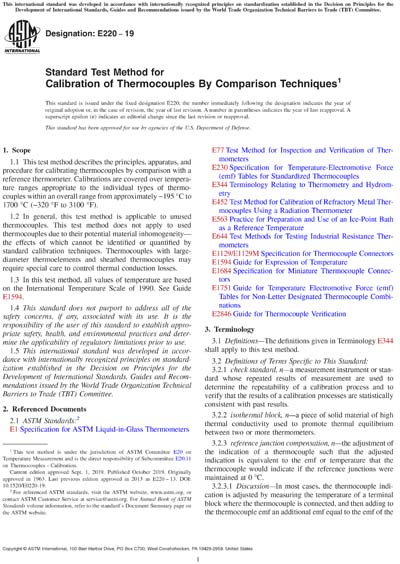Most recent
ASTM E220-19
Standard Test Method for Calibration of Thermocouples By Comparison Techniques
1.1 This test method describes the principles, apparatus, and procedure for calibrating thermocouples by comparison with a reference thermometer. Calibrations are covered over temperature ranges appropriate to the individual types of thermocouples within an overall range from approximately −195 °C to 1700 °C (−320 °F to 3100 °F).
1.2 In general, this test method is applicable to unused thermocouples. This test method does not apply to used thermocouples due to their potential material inhomogeneity—the effects of which cannot be identified or quantified by standard calibration techniques. Thermocouples with large-diameter thermoelements and sheathed thermocouples may require special care to control thermal conduction losses.
1.3 In this test method, all values of temperature are based on the International Temperature Scale of 1990. See Guide E1594.
1.4 This standard does not purport to address all of the safety concerns, if any, associated with its use. It is the responsibility of the user of this standard to establish appropriate safety, health, and environmental practices and determine the applicability of regulatory limitations prior to use.
1.5 This international standard was developed in accordance with internationally recognized principles on standardization established in the Decision on Principles for the Development of International Standards, Guides and Recommendations issued by the World Trade Organization Technical Barriers to Trade (TBT) Committee.
Content Provider
ASTM International [astm]






